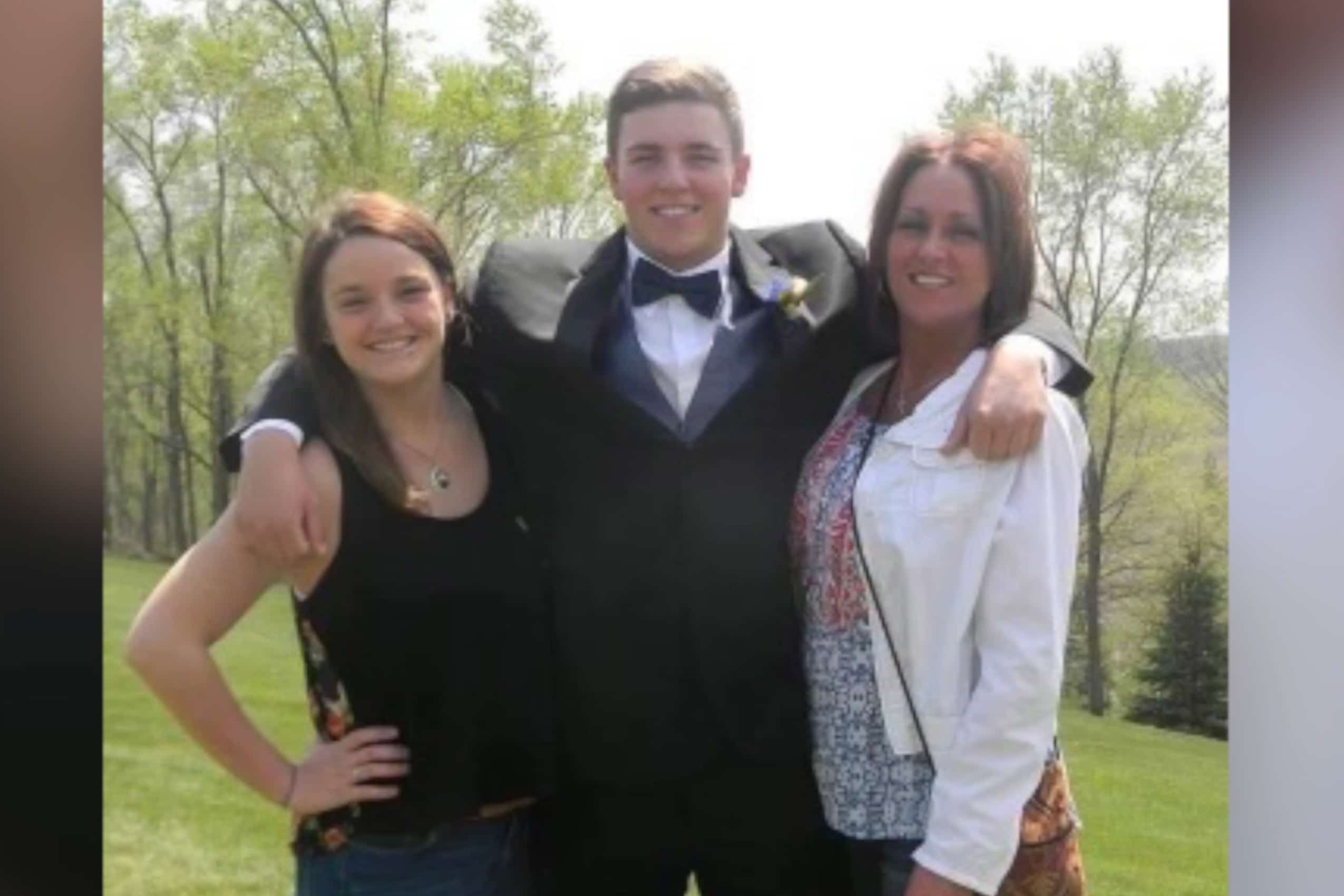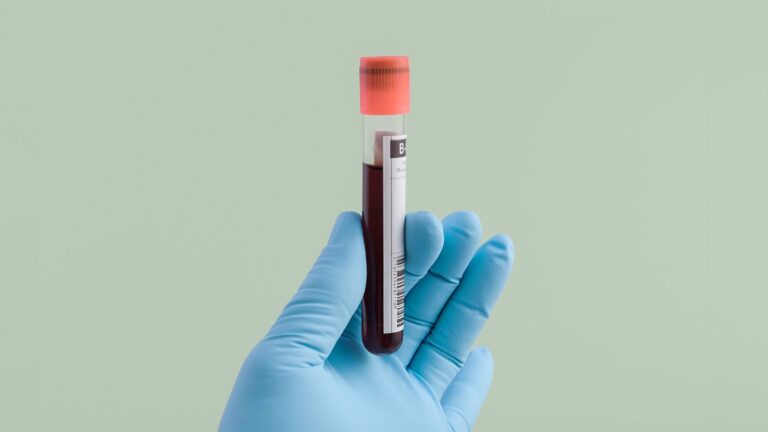Caleb Malek was 23 years old when he died in September 2021. He died of a fentanyl overdose inside a detox facility.
His mother, Jill Adams, joined Liz Collin Reports to discuss what she’s uncovered.
Talented athlete with a promising future
“He started carrying a ball around with him as soon as he started walking. He started sports in kindergarten with wrestling and T-ball,” Adams said of her athletic son.
In high school, Malek was offered a four-year scholarship to play division one baseball, but his problems with addiction surfaced during his high school years.
He received outpatient treatment as soon as his mom discovered his marijuana use.
“But his senior year he started Xanax. That was something that there was a visible change with him,” Adams recalled.
Addiction sets in
She said Caleb’s path went from opioids to meth then heroin and fentanyl.
“It is a very typical path and I knew this because Caleb was very open about everything and he claimed that there were several baseball boys that did Xanax because it really helped with their performance and it was not something that you could get tested for and fail like marijuana,” she said.

Caleb was in and out of treatment six times in the years that followed as his family did what they could to find him help.
“It was less than five years from the time he graduated to the time he died,” Adams said.
Overdose in a detox facility
Ultimately, he ended up at Zumbro Valley Health Center in Rochester in September 2021.
His mom explained what happened while he was there.
“He had just finished his sixth treatment and then he went to a sober living facility in Rochester. It was within the next day that the staff there had suspected the boys were kind of acting a little bit strange. They found an unused syringe. They drug tested a group of guys and Caleb tested positive for fentanyl. I think Percocet and THC they said. So, they offered him a ride to the detox center. They drove to the detox center, and he walked in the door at 3:30 in the morning and was carried out in a body bag at 11 a.m. What happened in that time has been my fight,” Adams said.
“It’s a place that I believe all mothers and fathers think that they’ll be safe. You know, when they’re in jail, they can still die from withdrawal. It is literally the only place that you believe in your heart that you can get a good night’s sleep because it’s a safe and secure environment with medically-trained staff,” she added.
Waiting for answers
Zumbro Valley Health Center in Rochester did not respond to repeated requests for comment.
“DHS recognizes the tragedy of the situation involving the loss of Caleb Malek and expresses sincere condolences to his family and friends,” the Minnesota Department of Human Services said in a statement. “While DHS licenses Zumbro Valley Health Center and is the lead investigative agency of alleged maltreatment occurring at that facility, state and federal laws related to data privacy in licensed substance use disorder programs limit the amount of information we can share.”
Adams said it took her more than a year to get DHS to conduct an investigation.
“I called on a weekly basis, anybody that would listen to me, I called DHS, I called the ombudsman … right up to Gov. Walz. It was a weekly thing I would do. I wanted answers. Why haven’t they been there? I couldn’t personally get my hands on medical records because I wasn’t the trustee of my son because you don’t expect to have to be at 23 years old. Finally, on March 1 came the long-awaited DHS report,” Adams said.
According to public information on DHS investigations, a license holder must notify the agency within 24 hours of the death of an individual. It also requires reports of investigative agencies to be complete in 60 days, but if “the agency is unable to complete its final disposition within that time frame, the agency is required to notify the vulnerable adult or vulnerable adult’s guardian and the facility of the delay.”

“Because investigations often present circumstances that require the agency to take longer than 60 days to complete a thorough investigation, the statute also indicates a final disposition is not invalidated solely because the investigation was delayed or required additional time. Investigations can and regularly do take longer than 60 days to complete. This is often because of the complexity of the specific case and due to a significant lack of resources and large caseloads the investigations unit has been handling, particularly in the summer and fall of 2022,” the public information says.
Stimulus money spent on addiction
In Minnesota, opioid-involved overdose deaths spiked by 35% from 2020 to 2021.
Adams said the government was essentially paying for her son’s drugs during his last years of life.
“He drew unemployment for a year and a half, and in that time, I believe there were three different stimulus packages that he received, like a lot of other people did, too. But it fueled his habit. He had money to buy his drugs. It was just an endless amount of money to support his habit. I know that is a big complaint with a lot of mothers that had children or adults that struggled. This was a big problem. This was feeding many addictions for a long time,” she said.
According to the family’s attorney, a DHS investigator and an officer with the Rochester Police Department reviewed surveillance video footage from the incident in Rochester. Their review confirmed Caleb was never checked on by staff during his stay, according to the attorney.
DHS fined the facility for “failing to provide Caleb Malek with reasonable and necessary care.” They were also fined for “providing false and/or misleading information,” the attorney said.
“A $2,000 fine for not checking on Caleb and a $200 fine for lying in their charts,” Adams said.
A mother’s message
“Do not give up,” Adams told other parents. She said she attends a group at Bethel Lutheran Church each month for Minnesotans who have lost a loved one to an overdose.
“I think that we are treating our folks with substance abuse disorder in 2023 like we have through the ‘80s, ‘90s, and 2000s. This is totally, totally different,” she said. “The heroin of the 90s is pattycake compared to what our loved ones are dealing with today.”
“It’s just a shameful thing for people to talk about. They feel it’s a bad parenting issue. They feel like it’s a moral issue,” she continued. “I just try to tell them, it is beyond our grasp of what is chemically going on in the brains of these people now with the drugs that are on the market today. I just never give up. Never lose hope.”
LISTEN:
The post Mother searches for answers after son’s overdose in detox facility appeared first on Alpha News.
This content was originally published here.



















